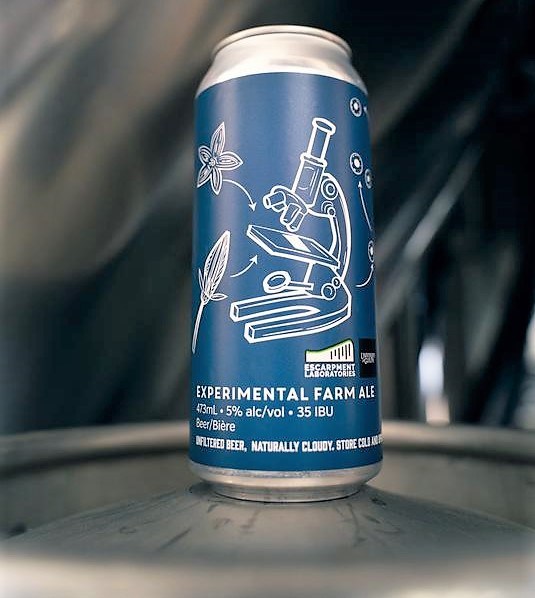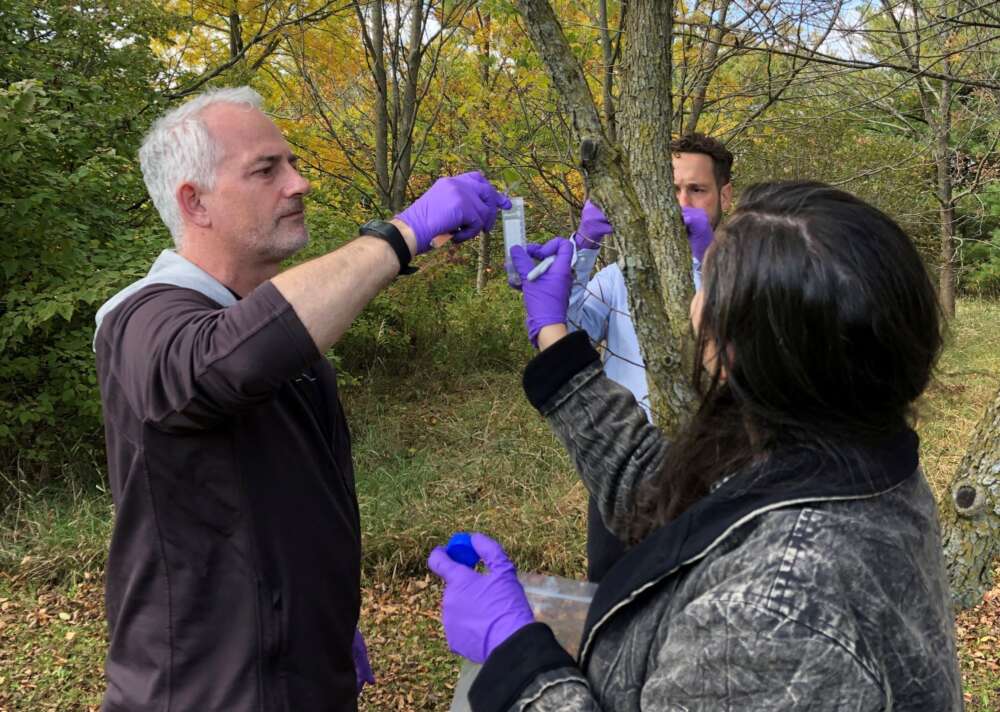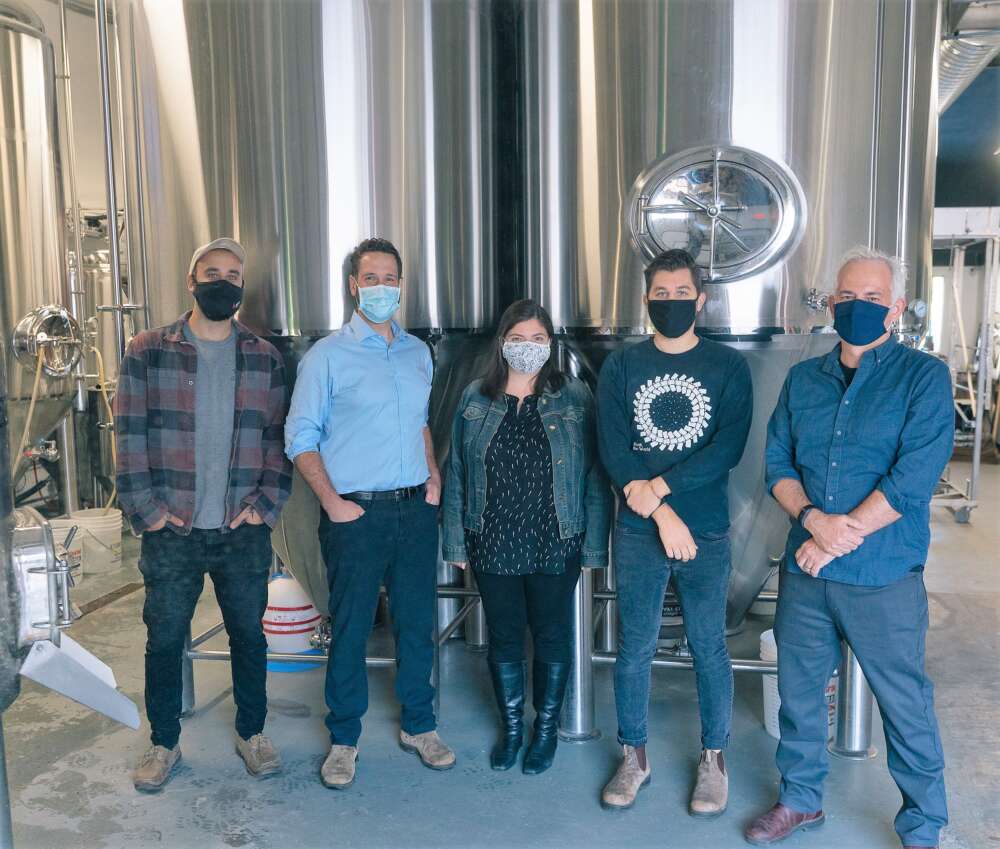 A uniquely Guelph beer made with wild yeast collected on the University of Guelph campus has been created by U of G food science experts, a local brewer and a company founded by University alumni.
A uniquely Guelph beer made with wild yeast collected on the University of Guelph campus has been created by U of G food science experts, a local brewer and a company founded by University alumni.
Experimental Farm Ale has just launched at Royal City Brewing Co., more than a year after a “yeast safari” on campus to find the right fermentation organisms to get it started.
Derek Vella, director of the Guelph Food Innovation Centre, and Shane Walker, manager of the U of G Brew Lab, came up with the idea for Experimental Farm Ale, the sixth beer developed at the brew lab featuring U of G research and work.
Previous beers used a heritage barley called OAC 21 developed more than a century ago at the Ontario Agricultural College, while another used honey from the U of G apiary and raspberries from the Guelph Centre for Urban Organic Farming on campus.
“In doing those, we thought, ‘Wouldn’t it be great if we could create a beer made with wild yeast collected right here on campus?’” said Vella.
So they partnered with Escarpment Labs, a company founded by U of G graduates that harvests, cultivates and sells yeasts to commercial and home brewers.

On a cool day last fall, the team set out on a “yeast safari” on campus to find the ideal starter.
They collected 35 samples from flowers and tree bark at the U of G Arboretum and fruit and vegetables from the organic farm. The samples were incubated in a sterile wort – the liquid made from mashed grains that begins the beer-making process – spiked with ethanol to isolate yeasts that could withstand the brewing process.
After several weeks of lab work to develop pure cultures and run test fermentations, the team found two suitable candidates, both a yeast species called Saccharomyces cerevisiae. Each was brewed into a simple beer, and a winner was chosen: wild yeast collected from a squash blossom at the organic farm.
It may sound like a lot of work for one ingredient, but Walker said the yeast used in beer can be just as important as the barley or hops.

(Photo courtesy Royal City Brewing)
“The yeast plays a big role in the flavour. Once we brewed both yeast samples, you could definitely taste differences in their flavour profile. The one we chose has a bright green apple flavour, while the other was more citrusy with some bitterness,” he said.
Walker then began work on a beer recipe at the U of G Brew Lab, which was established in 2016 to enhance Department of Food Science teaching on food microbiology, fermentation and cereal science.
The yeast from the squash flower ferments best at room temperature, around 20 C, making it an ideal ale yeast. Walker developed a British golden ale and brought his creation to the brewers at Royal City Brewing. That team tweaked the recipe, scaled it up and added it to the company’s Community Collaborations collection, a series of limited-run beers that raise funds for local organizations.
“A lot of work went into this beer, but what we helped create is a naturally unfiltered golden ale that has what I’d call a refreshing character with moderate bitterness,” said Walker.
The beer is now available at Royal City Brewery bottle shop, RoyalCityBrew.ca and select Guelph restaurants. Fifty cents from every can will go to ARCH Guelph, which offers support and services to people affected by or at risk of HIV and AIDS in Guelph and nearby counties.
Contact:
Derek Vella, Guelph Food Innovation Centre director
dvella@uoguelph.ca
Shane Walker, U of G Brew Lab
swalke03@uoguelph.ca